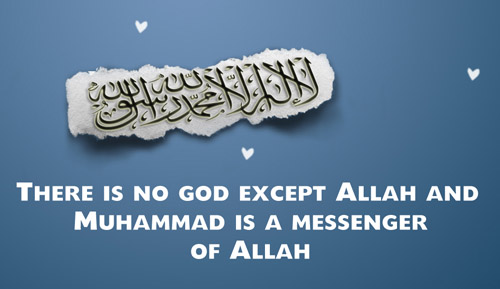Like many who have come before me and many who will come after me, I have felt a dramatic shift in my life when I came to Islam.
Many describe this as a lifting of fog. Some have said that it feels like a weight being removed from their shoulders.
So have they not traveled through the earth and have hearts by which to reason and ears by which to hear? For indeed, it is not eyes that are blinded, but blinded are the hearts which are within the breasts. (22:46)For me, it was as if I had been seeing life through smudged glasses. Everything was blurry. I often walked right into traps and walked away from goodness for the simple fact that I could not see clearly.
To this day, chapter Al-Hajj, verse 46 of the Quran impacts me in a very profound way because I have known what blindness of the heart feels like.
It is like wearing smudged glasses, not being able to see the beauty in the world or danger when it comes your way. But it is also sense that something is very wrong, but not knowing that you are living a life obscured from reality.
I spent a few years as a young adult wandering in this blindness until God granted my fumbling, grasping, and desperate soul, guidance. But Islam has given me so much more than clear vision, it has shown me the path, given me purpose, perspective, and offered protection.
Islam opened my eyes to the fact that I am a traveler in this life.
The Path
It is no mistake that Islam is called the deen, or the straight path because there is no shorter distance between two points than a straight line.
The fact is that we all live life on one path or another. Whether we know it or not, whether it is winding, aimless, dark and treacherous, or guided, well-lit, and straight; we are all choosing a path. And whichever path we choose determines our destination.
Islam is the shortest distance between us and our purpose as human beings: the ultimate destination. And to that destination God has given us a well-lit, well-traveled path, the path of God’s messengers.
It was not until I accepted Islam that I felt I had a safe and simple way to travel through life.
Purpose
What propels one forward on any path is a purpose or destination. Not often do we get on the road to drive, bike, or walk to nowhere.
Even if the road we are traveling leads not to a physical destination but an emotional one (who among us hasn’t gone for a drive to calm down?), we still have a purpose for being on it.
There is no difference with the straight path of Islam. It leads somewhere.
As Dr. Jeffery Lang, an author, professor, and convert to Islam, says about the purpose of life as stated in the Quran:
“It’s very clear when you read the Quran that what [mankind] will achieve in this life- to so much greater degree in the next- is that they will experience a relationship of love with God. They will turn to God in love and God will turn to them in love.”
It was not until I accepted Islam that I felt I wasn’t just moving aimlessly from task to task, but I had a clear, well-defined purpose.
Islam offers the ultimate purpose for moving forward on the path – to find peace in knowing, trusting, and loving God. It offers this as the highest goal for the spiritual being: drawing nearer to God in the hopes that we will be forever near Him, our home and source in the hereafter.
Perspective
Islam allows for pitstops or other, lesser goals in life. It even encourages us to have good career goals, academic goals, relationship goals that all lead to our larger purpose.
But Islam also gives us perspective, showing us that these goals should not distract us from the greater goal of drawing nearer to God.
Similarly, we will find things that can easily distract us from the direction we are meant to travel. Stormy weather, a flat tire, running out of provisions are all situations that can distract us from our direction on the road.
Just like in life, distractions or hardships can also throw us for a loop on the spiritual path and cause us to lose our bearings.
But Islam is the compass that stays true, putting other goals and hardships of life in perspective, ever directing us toward our spiritual goal.
It was not until I accepted Islam that I had some directionality, a focus that has kept me moving in the direction of my ultimate goal even when life tries to knock me down.
Protection
Islam also offers the traveler protection from the avoidable hardships of traveling. Islam, as a code of conduct, is like the signs on the path telling us what hazard is up ahead that we can avoid. It informs us of when to speed up or slow down, when to change lanes, and when to turn on our headlights so we don’t harm ourselves. So we make it through this life in one piece.
We are all travelers in this life. I never knew that until I knew Islam. In Islam, I found the straightest path, purpose, direction, protection, and more.
Now that I have clarity and the tools every traveler needs, it is up to me to make my journey a success.
(From Discovering Islam’s archive)








